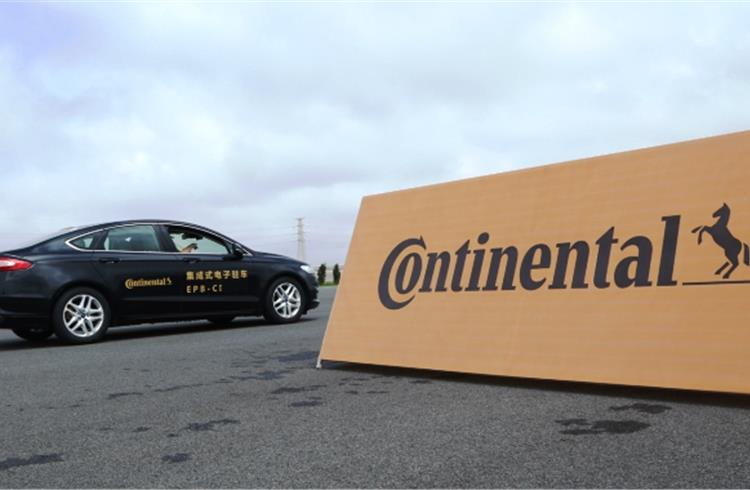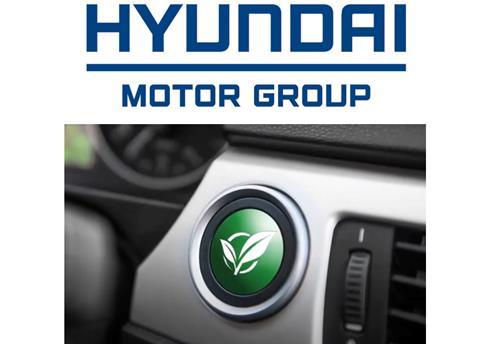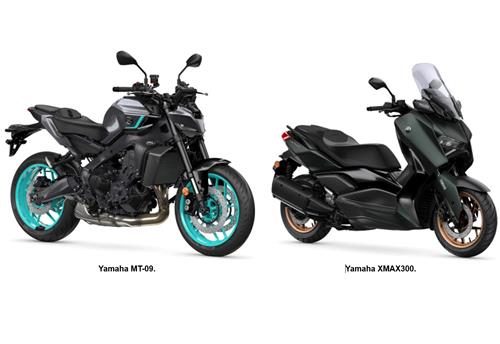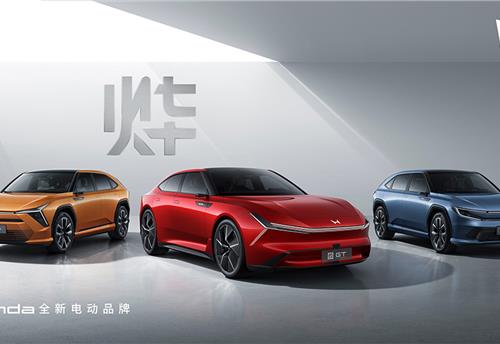Continental bets big on ADAS, to strengthen development capacities in Japan and India
The sustained sales growth of Asian vehicle manufacturers and increasing focus on the development of ADAS and automated driving has seen Continental expand its business presence in the continent.
Global automotive technology company Continental is betting big on Asia, which remains the number one growth market for the automotive industry – and the numbers are impressive.
Over 50 percent of all vehicles produced worldwide come from Asian car manufacturers and approximately 30 percent of all vehicles manufactured worldwide come from Japanese automakers car manufacturers. Ahead of the 2020 Olympic Games in Tokyo, Japanese vehicle manufacturers are also amongst the automotive companies that are pushing the development of innovations in advanced driver assistance systems (ADAS) and automated driving.
Continental says its ADAS business unit is also profiting from the dynamics in Asia. The company began research on driver assistance systems 20 years ago – and today is ideally positioned thanks to its core skills in assisted and automated driving, such as cameras, radar systems, high-resolution laser sensors, electronic control units and software.
Karl Haupt, head of the Advanced Driver Assistance Systems business unit of Continental believes ADAS is the company’s strongest growth area: “This year we will achieve sales of well over one billion euros thanks to our surrounding sensors. In 2020, we expect to exceed two billion in sales, which equates to a further doubling in just five years. Much of this sales growth is driven by Japanese manufacturers – but we still see strong growth potential in China and with Chinese OEMs. We expect to achieve around one billion in sales with Asian OEMs by 2018.”
Strengthening development capacities in India and Japan
Continental is particularly focusing on strengthening the development of local capacities through the transfer of increased responsibility, competence and know-how. In India, the business unit develops software and algorithms for advanced driver assistance systems. At the start of the year, the company claimed that India is emerging as a focus market for airbags, Anti-lock Brake Systems (ABS) and Electronic Stability Control (ESC), mainly due to the growing awareness and acceptance of safety technologies in vehicles. It will set-up a new assembly line for ABS and ESC for passenger cars and later ABS for two-wheelers in the existing Continental Automotive Brake Systems plant in Gurgaon, Haryana.

The tech centre India in Bangalore is where software and algorithms for advanced driver assistance systems are developed.
Meanwhile in Japan alone, the number of development engineers has quadrupled in the past three years. All Japanese manufacturers are also managed directly from Japan. At the beginning of this year, the Toyota Motor Corporation bestowed its Annual Technology & Development Award on the ADAS business unit for the second time, this time honoring the contribution of the multi-function camera with Lidar (MFL) to Toyota’s active safety package, “Toyota Safety Sense C“. Meanwhile, more than ten Toyota models worldwide are equipped with the Continental sensor module.
“The strong growth trend is continuing unabated in Asia and more than 1,000 of our people work here, 70 percent of whom are in Engineering. This underlines the importance of the Asian market and the Asian manufacturers. For our latest technologies and innovations, we can draw from a huge pool of skilled talent and offer excellent services worldwide,” commented Norbert Hammerschmidt, head of the Advanced Driver Assistance Systems business unit in Asia.
Increase in production capacity for radar sensors in the Philippines and in China
Continental claims that high degree of localisation is a core strategy for its growth, especially “in the market for the market.” To meet the growing demand of Asian vehicle manufacturers for surrounding sensors, production of short-range radar sensors was launched in Calamba in the Philippines towards the end of 2015. Short-range radar sensors perform functions like Blind Spot Detection, Lane Change Assist and Rear Cross Traffic Assist. Driving forces include legal requirements, but the customers’ demands for more safety and comfort are also of key importance. Additionally, the production of the multi-function camera with Lidar will be launched this year. The supplier aims to produce over 10 million short-range radar sensors and 1 million camera systems in Calamba in the future.

In China, increased focus is also being placed on vehicle safety, which is one of the most important factors in the purchasing decisions of Chinese consumers. To address this trend and strengthen Continental’s ADAS presence in China, a new management position was created and Neil Tang was announced as the first Head of ADAS business unit China. Along with the new head of ADAS Engineering China, another new position was also filled to further expand the local presence and to supervise series projects together with international and Chinese vehicle manufacturers. A further milestone is the launch of long-range radar sensor production for various customers, planned for 2018 in Shanghai.
Assisted and automated driving – on the road to Vision Zero
“The key to ‘zero accidents’ is the development from assisted to automated driving. Advanced driver assistance systems are already helping to prevent accidents, or at the very least to mitigate their consequences. They help the driver to perform his driving tasks and assist him in the safe and efficient operation of the vehicle. When the vehicle is in the automated driving mode, the results achieved by these increasingly intelligent surrounding sensors show that the vehicle reacts faster than a human driver to traffic situations, that it completely ignores potential distractions and that it drives more safely than a human being ever could,” said Continental’s official statement.

The key to ‘zero accidents’ is the development from assisted to automated driving on the basis of surrounding sensors.
The company has its own test center for development and testing in Mombetsu on Hokkaido Island in northern Japan. With the development of another vehicle test centre for China, Continental increased its global development capabilities. The Chinese team is responsible for the development of components and algorithms as well as the validation of automated driving systems and functions in China locally.
Recommended:
- Continental Automotive Systems eyes operational expansion at Chakan unit
- Interview with Claude d’Gama Rose, Managing Director, Continental Automotive India
RELATED ARTICLES
Hyundai and carbon fibre specialist Toray to develop lightweight, high-strength materials
Partnership aims to secure capabilities to develop lightweight and high-strength materials for environmentally friendly ...
Yamaha wins Red Dot product design awards for MT-09 and XMAX 300
The latest awards mark the 13th year in a row – every year since 2012 – that a Yamaha Motor product has received a Red D...
Honda reveals new Ye series of EVs for China
A second set of Ye EVs will be revealed in the coming months, completing the six-car line-up for China.





 By Autocar Pro News Desk
By Autocar Pro News Desk
 29 Aug 2016
29 Aug 2016
 12764 Views
12764 Views









